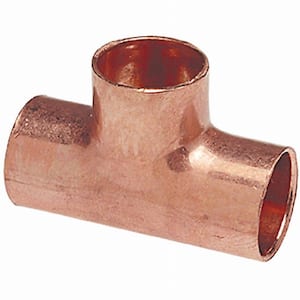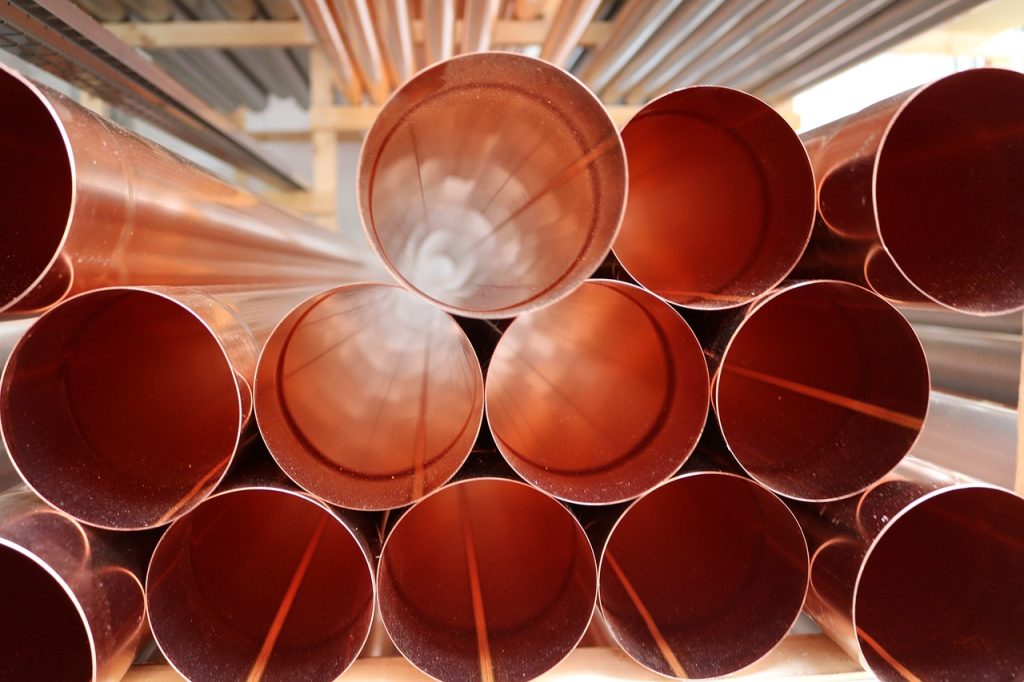Raise Your Craftsmanship with High-Performance Copper Products for Artisans
Raise Your Craftsmanship with High-Performance Copper Products for Artisans
Blog Article
Checking Out the Diverse Applications of Copper Products in Modern Industries
From improving the efficiency of electric systems to playing an important duty in renewable power technologies, the flexibility of copper is obvious. As sectors increasingly prioritize innovation and sustainability, the varied applications of copper call for a closer examination, particularly regarding their prospective effect on future technological developments and environmental methods.
Electric Applications of Copper
Copper is an important material in the electric industry, making up about 60% of the complete demand for non-ferrous steels internationally - Copper Products. Its exceptional electric conductivity, which is nearly two times that of aluminum, makes it the favored option for a vast array of electrical applications. From circuitry systems in residential and business structures to high-voltage power transmission lines, copper guarantees effectiveness and integrity in power shipment
Along with circuitry, copper is essential to the production of electrical elements such as generators, motors, and transformers. These parts utilize copper's thermal conductivity and malleability, essential for warmth dissipation and reliable efficiency. Copper's resistance to rust improves the life expectancy and sturdiness of electrical systems, making it a cost-effective service in the long term.
The growth of sustainable power sources, such as solar and wind power, has actually additionally raised the need for copper in electric applications. As sectors transition towards lasting energy services, copper's function ends up being also much more essential. Overall, the versatility and efficiency characteristics of copper strengthen its condition as a cornerstone material within the electrical market, driving innovation and efficiency across various applications.
Plumbing and Piping Solutions
In modern plumbing systems, the option of products substantially impacts both functionality and durability. Copper has actually become a recommended alternative as a result of its special homes, including deterioration resistance and antimicrobial features. These characteristics make certain that copper piping continues to be risk-free and durable for carrying safe and clean water, an important consideration in domestic and industrial applications.
Among the key benefits of copper in pipes is its capability to endure heats and pressures, making it ideal for a selection of applications, from warm water systems to heating and cooling networks. Furthermore, copper's flexibility permits much easier installation in complicated piping layouts, lowering the danger of failures and leaks.
Another noteworthy advantage is copper's long lifespan, typically surpassing 50 years with correct maintenance. This longevity not just reduces substitute prices but likewise contributes to lasting techniques by lowering waste. Furthermore, copper's recyclability straightens with contemporary ecological criteria, advertising a circular economy within the plumbing market.
Copper in Renewable Resource
The versatility of copper extends beyond pipes applications, playing a crucial function in the renewable resource sector. Its superb electrical and thermal conductivity makes it a vital material in the manufacturing and circulation of renewable resource resources, particularly solar and wind power. In solar panels, copper is used in solar batteries and electrical wiring, assisting in effective energy conversion and transmission. Its resistance to deterioration ensures durable performance, which is important for making best use of power result gradually.

In addition, as the global demand for electric vehicles (EVs) rises, copper's function in battery systems and charging infrastructure becomes much more substantial. The product's ability to perform power efficiently is integral to the performance of EV batteries, boosting range and billing rate.
Copper's Duty in Electronics
Electronics making relies heavily on copper's extraordinary homes, specifically its high electrical conductivity and thermal effectiveness. These qualities make copper a suitable choice for a large range of electronic components, consisting of connectors, circuit boards, and circuitry. The metal's capability to successfully send electric signals makes certain very little power loss, which is important in high-performance digital gadgets.
Furthermore, copper's thermal conductivity plays a substantial duty in heat dissipation, securing sensitive elements from overheating. This is especially vital in modern electronics, where compact styles result in increased heat generation. Copper is additionally favored for its malleability and ductility, permitting it to be quickly formed into complex styles that fulfill the needs of advanced electronic applications.
With the increase of customer electronics, telecommunications, and electric automobiles, the need for copper in the electronic devices field remains to grow. As technologies in modern technology develop, copper remains integral to achieving higher efficiency and dependability in digital products. Its recyclability additionally improves its appeal, as manufacturers seek lasting solutions without compromising top quality. Hence, copper remains a foundation product in the ever-expanding area of Related Site electronic devices.
Innovative Makes Use Of in Production

One remarkable application is in additive manufacturing, where copper-based materials are used in 3D printing processes. This permits the production of intricate geometries and light-weight components, particularly in the aerospace and automotive markets. Furthermore, copper's thermal conductivity makes it an optimal choice for warm exchangers, boosting effectiveness in commercial air conditioning systems.
In addition, the increase of wise manufacturing has seen the unification of copper in IoT tools, where its conductive capabilities support advanced picking up modern technologies. In the realm of renewable power, copper is critical in the production of solar panels and wind turbines, promoting a lot more effective power conversion and circulation.
As sectors strive for sustainability and technology, copper's convenience and efficiency remain to position it as a vital product, driving innovations in production and adding to the growth of smarter, much more efficient products.
Conclusion
The indispensable duty of copper in sustainable energy and its important feature in electronics emphasize its importance in advancing lasting techniques. Collectively, these applications show copper's crucial contribution to technical progression and industrial efficiency in modern society.
From boosting the performance of electrical systems to playing a crucial duty in renewable energy technologies, the adaptability of copper is noticeable. As industries progressively prioritize innovation and sustainability, the varied applications of copper necessitate a closer exam, especially concerning their possible effect on future ecological practices and technological advancements.
The development of sustainable energy resources, such as solar and wind power, a knockout post has actually better increased the need for copper in electrical applications. In general, the convenience and performance characteristics of copper solidify its condition as a keystone product within the electric market, driving technology and effectiveness across various applications.
The convenience of copper extends beyond pipes applications, playing a vital duty in the renewable power sector.
Report this page